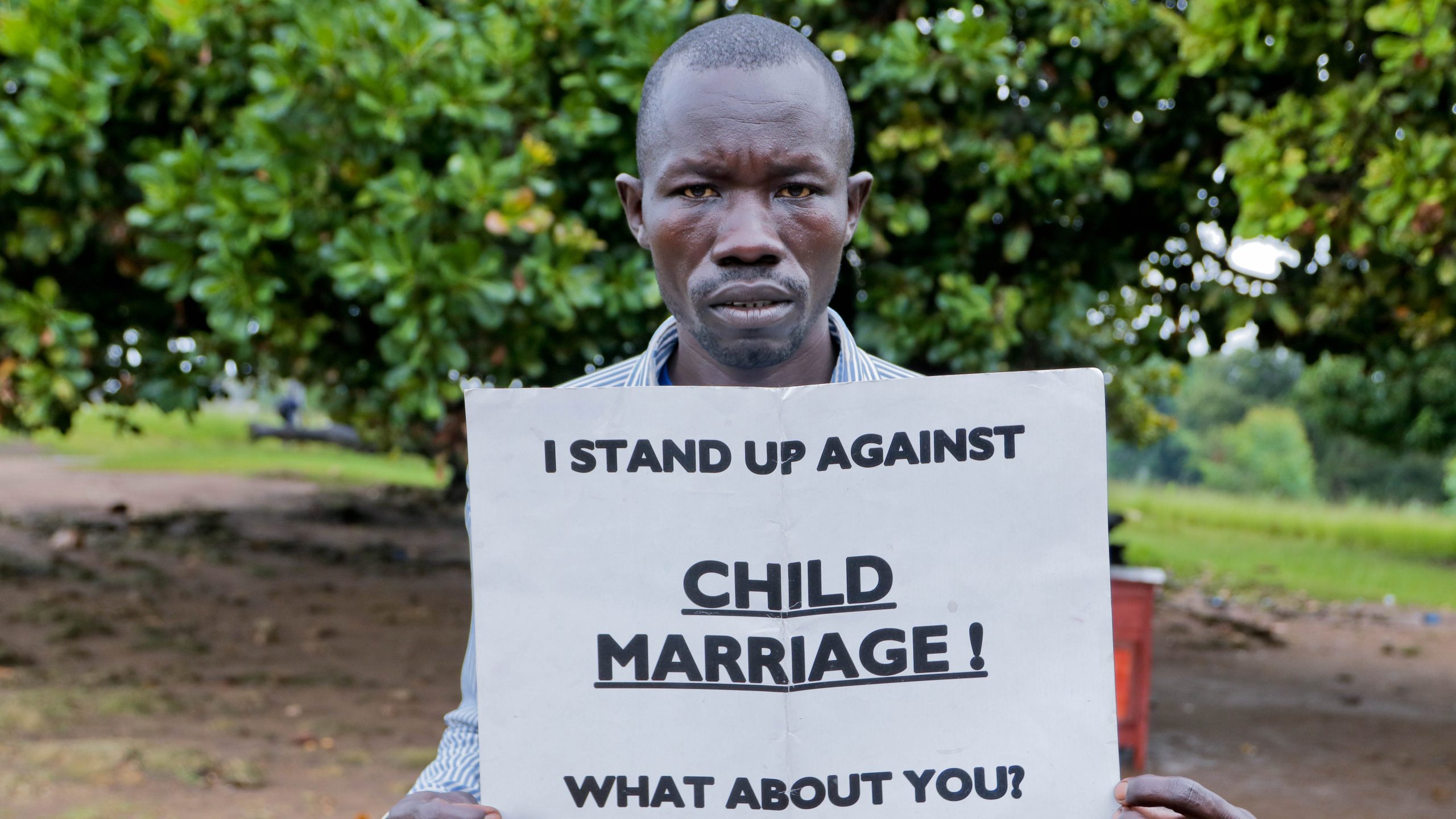Movement Matters #4 – Amani Initiative
“At Amani Initiative, our strength has been our ability to leverage pathways at the community level,” shares Nixon Ochatre, Founder of Amani Initiative and Chairperson for the MCLD Uganda Chapter. In the fourth edition of the Movement for Community-led Development’s monthly column, Movement Matters, Sera Bulbul and Nixon Ochatre talk about working with community change agents to prevent and respond to child marriage and teenage pregnancy.
Sera Bulbul: What is the creation story of Amani Initiative and how did that evolve?
Nixon Ochatre: I founded the Amani Initiative when I was still at university. I witnessed child marriage and teenage pregnancy a lot growing up and founded Amani Initiative trying to prevent and respond to teenage pregnancy and child marriage through community-led solutions. I was inspired to name the organization, “Amani” which means “Our” in Lugbara a local language spoken in my tribe because of the opportunities that come with a community coming together to address their challenges.
How does a normal person in a community prevent child marriage? I thought that this was something that any of us could do, no matter what one’s career is or where we come from. I believed and still believe that ending child marriage or teenage pregnancy would require a personal and collective commitment first, so at 19 years old in 2011 I made that commitment. I invited my friends to join me in this commitment, they bought into it. We aimed from the start to amplify people’s own solutions to address challenges and barriers through leveraging available resources/structures within the community.
Now we work through four thematic areas: education, child protection and safeguarding, social and economic empowerment, and child, adolescent, and maternal health and have been able to positively impact over 100,000 people across 15 districts in Uganda, 3,000 low-cost schools, 15 community health centers, women groups and households through community-led interventions since 2012.
Sera: When you look back on your work, what are you most proud of?
Nixon: I am extremely proud that we have been able to make a positive difference within our communities for 10 years with the biggest percentage of our resources coming from within communities. We are making communities believe that they can be part of the solution, in fact, that they are the solution. To start to do so, first, we look at how to use a list of resources to make communities believe that they are the solution. This means looking at external resources. At Amani Initiative, our strength has been our ability to leverage pathways at the community level. We work with change agents across a network that includes over 3000 schools, and we work within strong community structures that make us able to do our work.
Sera: Are there any challenges to putting communities front and center in this way?
Nixon Ochatre: There certainly are challenges. The issue of child marriage and teenage pregnancy that Amani is trying to address is engrained in social and cultural norms that exist within communities. This made it hard to bring the right people to our team. Some perceived me as not having the legitimacy to engage in these issues based on age. We addressed this challenge by making sure that our front-line structure – the people spearheading our work – were members of the community. This meant involving elders, opinion leaders, and religious leaders so that we could bring these social issues to the attention of all stakeholders.
Another challenge has been funding, in particular, showing that it is possible to do what we do with limited donor funding and external resources but rather leveraging existing community resources. It was hard at the beginning to convince communities and my fellow founding members that we could achieve our goals with limited external funding. People wonder how we have been able to keep our vision running without these two things. Amani Initiative had 10 founding members. Three years down the road, we lost most of these members because they did not believe we could keep the vision running without funding. All along our existence, we have focused on leveraging existing structures, not on obtaining external funding which has supported our existence over the years and continues to attract external funding given that our interventions are low-cost, high-impact, community-led, and sustainable.
Sera: What are the core values of the Amani Initiative and how do they align with the ideas of community-led development?
Nixon Ochatre: Amani Initiative has three core principles: trust, use what you have, and work at an equal level with the community.
- Our idea of community-led solutions centers around trust. In most cases, when a project is being funded externally, people believe that communities do not have the capacity to implement the work. Yet, the fact is that communities have a wealth of resources, experiences, and capacities that all contribute to implementing solutions. If organizations or implementers want to work with communities, they must act with a belief that the communities they work with are not just beneficiaries but also partners in development, and think about how they can expand on a community’s existing strengths.
- Community-led development is about using what you have to achieve your vision. Most of us in communities have a lot of opportunities already. This means that at the community level, we already have what we need. Amani Initiative’s foundation was based on what is existing – how do we best work with that to achieve our objectives?
- Many external stakeholders come in hoping to work with communities but end up exploiting them. At Amani Initiative, we put the communities at the same level as our staff. This means trying to become a part of the community to ensure that relationships are based on trust and equality. No one part is bigger than the other.
Sera: How has Amani Initiative been able to continue its work for 10 years?
Nixon Ochatre: It is part of Amani Initiative’s strategic plan to use low-cost, high-impact, community-led solutions. For us, this means that before we start any project – even if it is donor-funded – we sit as a team and ask if we would be able to implement this work even without donor funding. It is important to ask these questions to ensure that we are not entirely dependent on donors for our work. The community needs donor funds but these should always come in to fill in the gaps.
Usually, when funding from outside comes in, people stop focusing on the problem and focus on the money. We focus first on asking ourselves if we would address this problem without donor funding. If the answer is yes, then we start. We believe that funding from outside should come in only to address gaps that we can’t meet. By using this process, we have been able to do a lot of work using fewer resources but achieving a high impact.
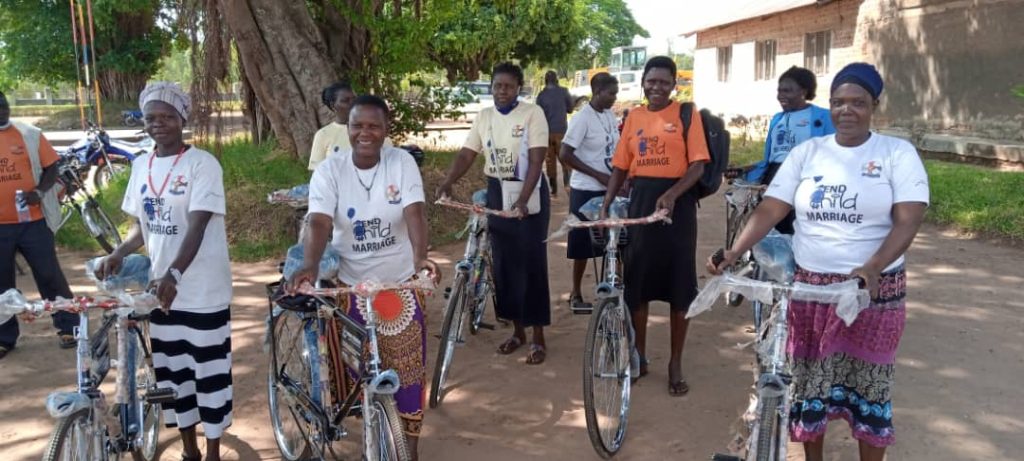
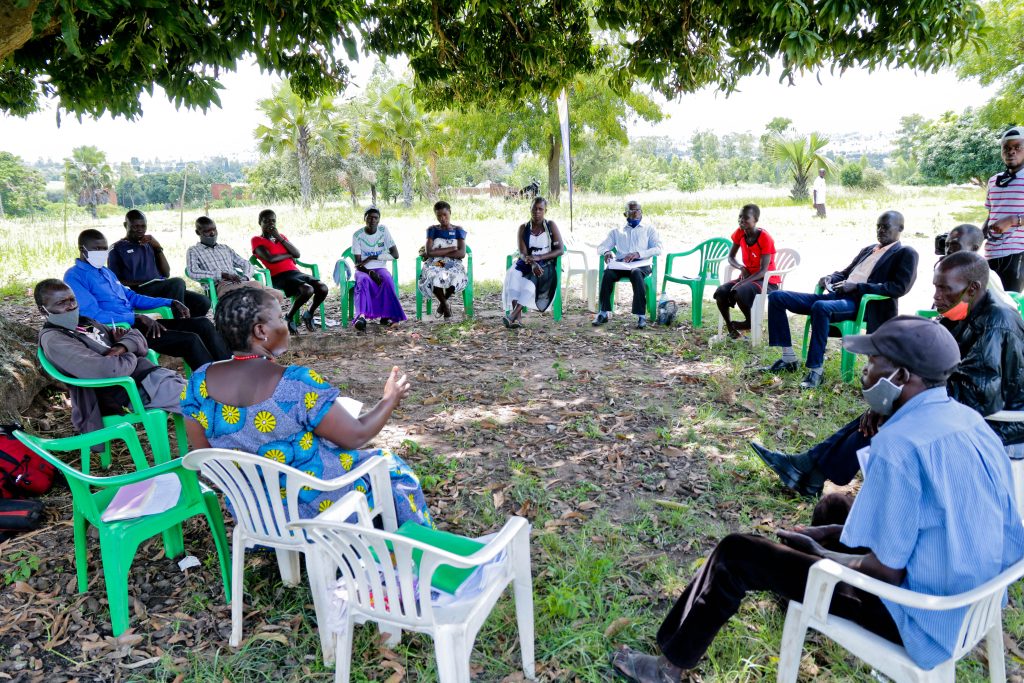
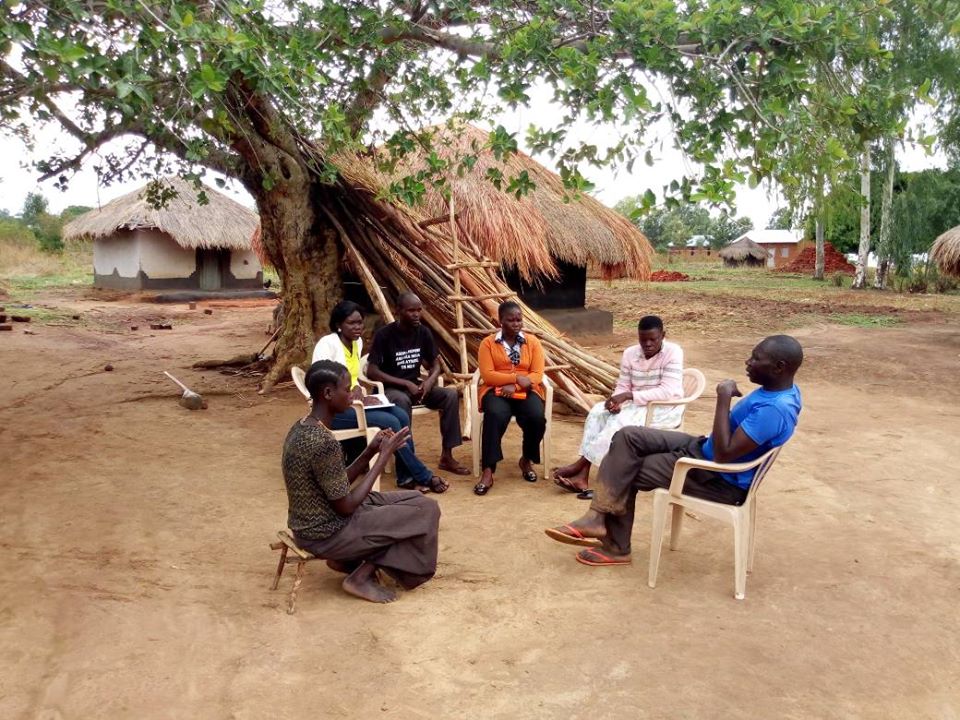
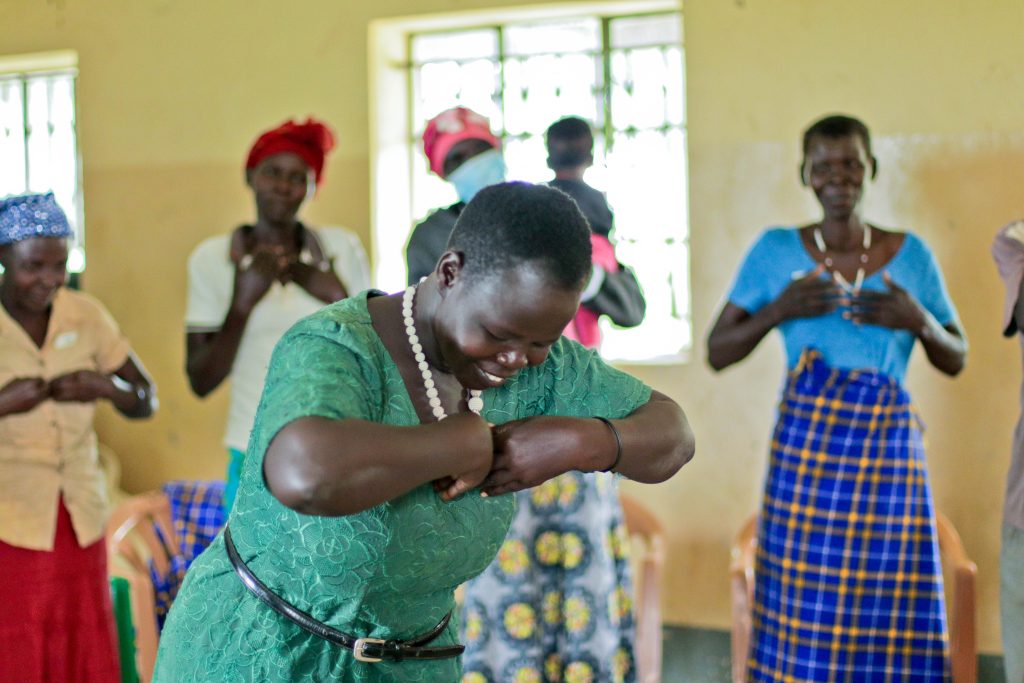
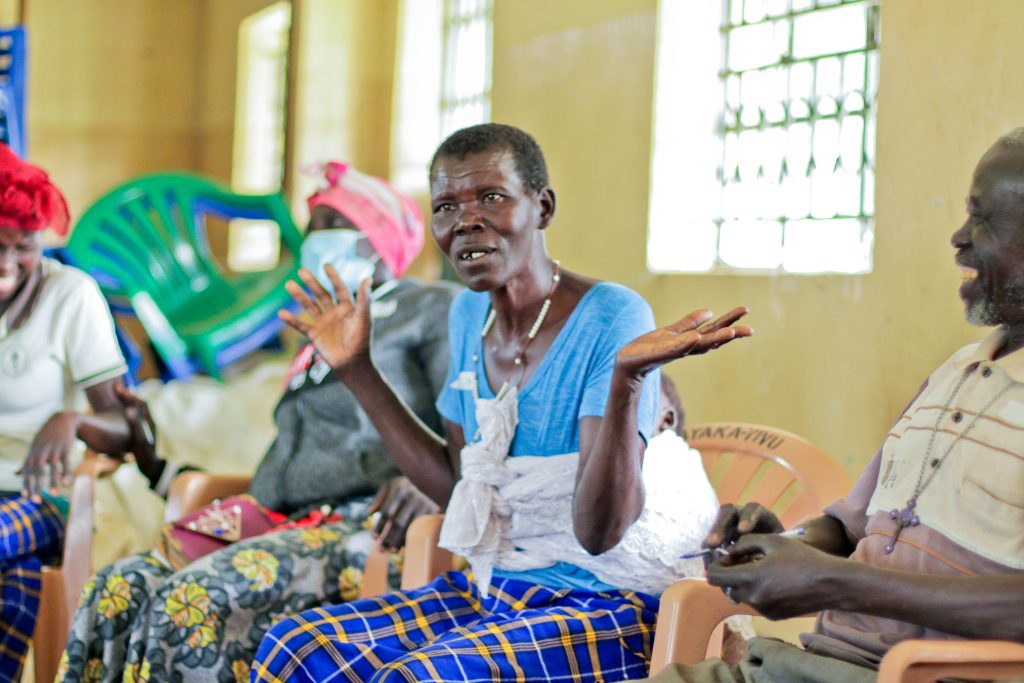
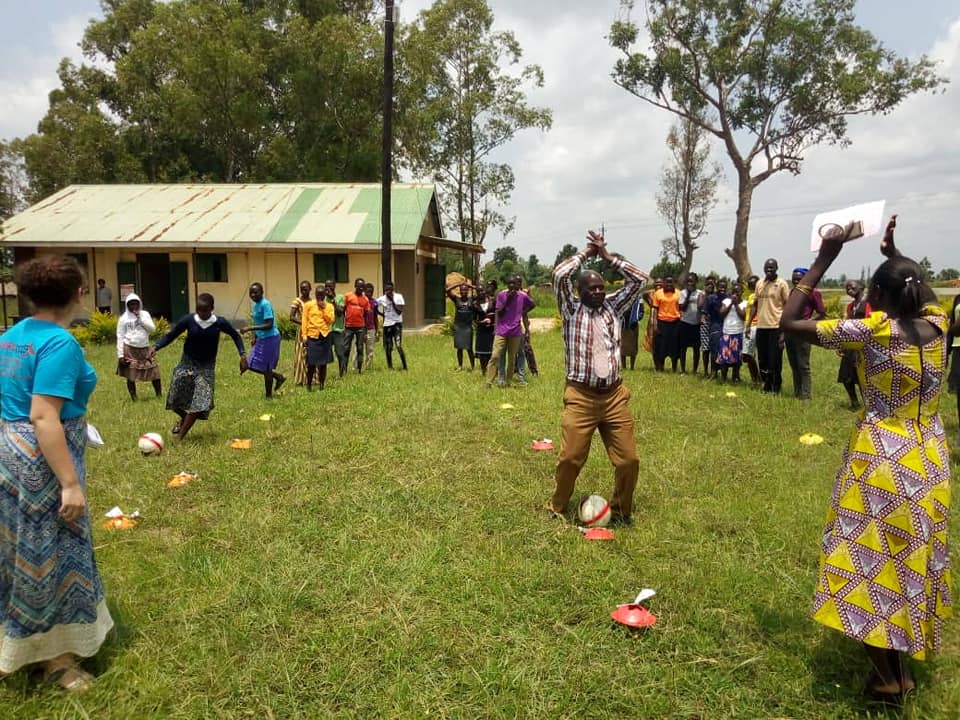
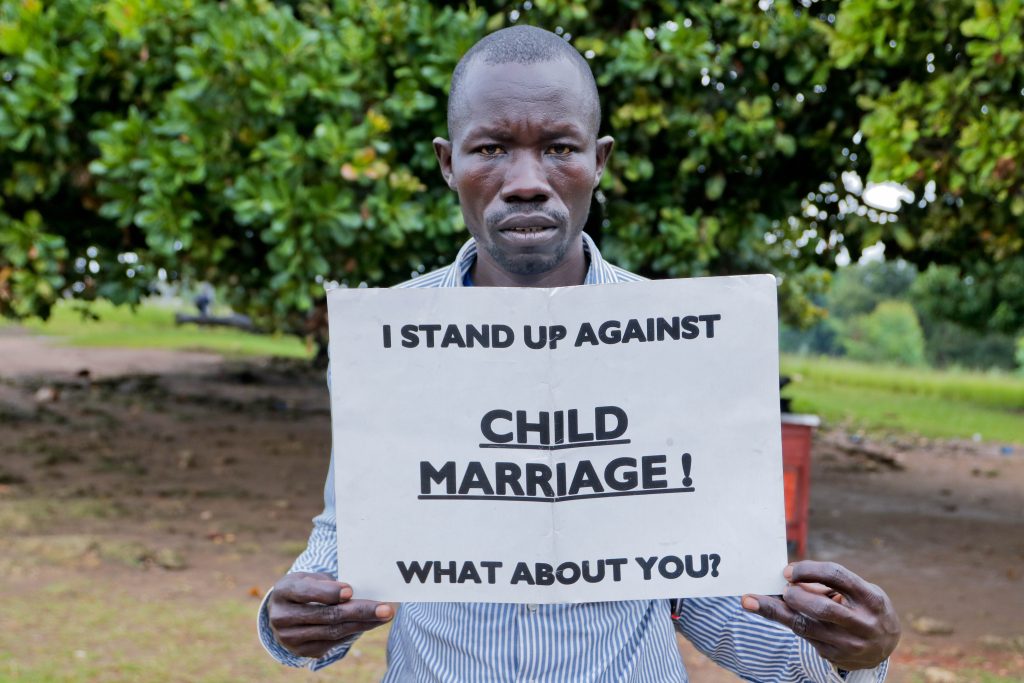
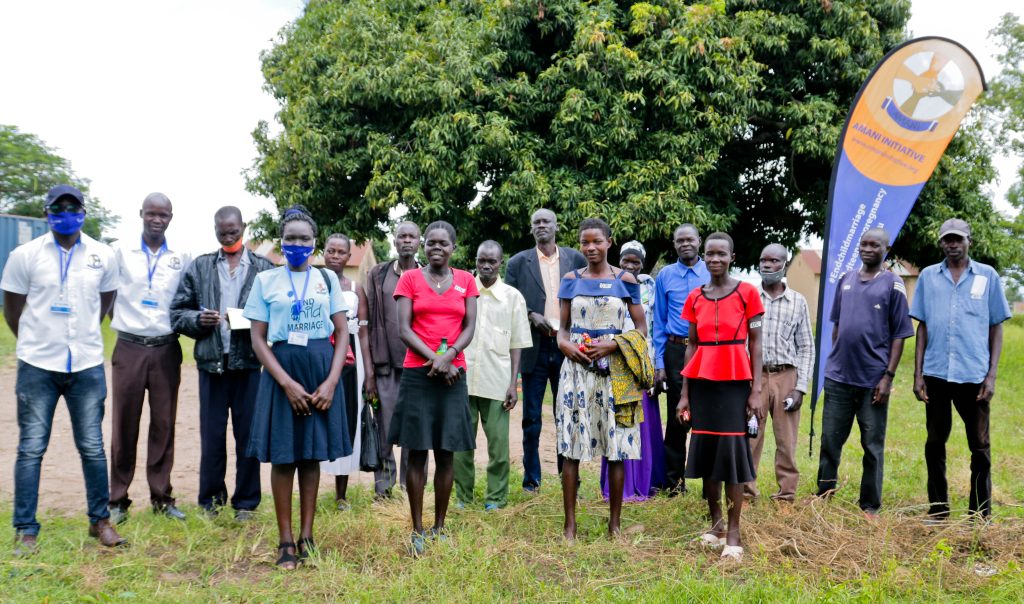
Sera: What compelled you to join the Movement?
Nixon Ochatre: I learned about MCLD two years ago when I was invited to be part of an activity hosted by MCLD Uganda. When I heard about the Movement’s vision, I knew this was something I wanted to belong to. This is what I had been working on for the last seven years! I became involved and was lucky enough to be voted as the chairperson of the Uganda National Chapter when it came time to be nominated for leadership positions. Now, my role is to convince even more people to buy into community-led development, to work on advocacy with our current members, and to implement activities towards strengthening community-led development in our work.
Sera: Has the Movement changed your understanding of community-led development?
Nixon Ochatre: In fact, my understanding of community-led development has changed both positively and negatively. Through being part of MCLD I have been able to learn about tools to guide my work – I am now equipped to present to others what community-led development is. I have also been able to redesign some of my programs and assess whether my work is really in line with the goals and characteristics of CLD.
As I have learned more about shifting the power, I have been able to understand who is behind the initiative. It is clear to me that we need more work around shifting the power and having an equal and transparent space for all stakeholders, inclusive of international, national, and grassroots organizations to directly benefit from and play a role in the shift the power movement.
Sera: What can MCLD do for youth?
Nixon Ochatre: In the case of Uganda, more than 75% of our population is made up of youth (those 15-30 years old). I am proud to say that most of the organizations that are members of MCLD Uganda are youth-led. Our chapter provides a convening space for youth to build up the organizations that they work with.
I see an opportunity for MCLD to build youth-specific clusters or wings within chapters. These could be focused on identifying the main issues youth are facing, while also finding ways to intentionally bring youth to the table. These clusters would leverage the youth’s presence through mentorship, identifying resources, and trainings.
Sera: What is your advice to someone starting a community-based organization?
Nixon Ochatre: I would say to them to use what you have to get what you need. Most people fail to start because they are looking for what they don’t have; they are waiting for something to come, but the best thing that is available is what is already in the community. Work with the community, not for the community.
Sera: What about one piece of advice or guidance you would give an international organization or institution starting its journey to intentionally shift power?
Nixon Ochatre: My biggest advice is to trust. I have been in spaces where big international institutions are not able to provide resources to local organizations or communities because they believe they do not have the capacity to do the work. In my experience being involved in sub-granting with different entities, I have seen the majority of the work is done by the grassroots partners while receiving only a small percentage of the resources. This unequal workload means that at the end of the day, it is the community that does the most work on the programs that they are attached to with limited resources.
You need trust and empathy to shift the power. Without these, then the idea of shifting the power will stay only on paper.
Sera: Could you tell me about a specific example of Amani Initiative using community-led development in practice? Perhaps an example of mobilizing for change in a community?
In 2018 under the Amplified Community Project; Amani Initiative conducted a community data collection process across health facilities and schools within the Maracha district using our community change agents. From the data collection, we realized that a total of 24,346 children (15+) have never been to school which is a risk to child marriage for both boys and girls. The data from the district also indicates that at least 11,365 girls between (12-17 years) have given birth.
To respond to the findings, Amani Initiative closely worked with the 30 change agents who included opinion leaders, parents, and youth to conduct community advocacy dialogues, participate in briefing meetings and school awareness campaigns to identify issues and possible solutions that can be adopted at the individual, household, community, and district levels. Out of the dialogues, the community members resolved to petition the local government to increase budget allocation towards programs intended to prevent and respond to teenage pregnancy and child marriage. The community change agents took lead in mobilizing over 279 signatures to petition the local government. The petition was successfully presented by the change agents to the district council and adopted.
Through community-led efforts, we have seen the local government passing an ordinance to increase investment in girl child education and also pass resolutions to enforce existing bylaws intended to prevent and respond to child marriage and teenage pregnancy within Maracha District.
Cover Photo: Amani Initiative
About Nixon:
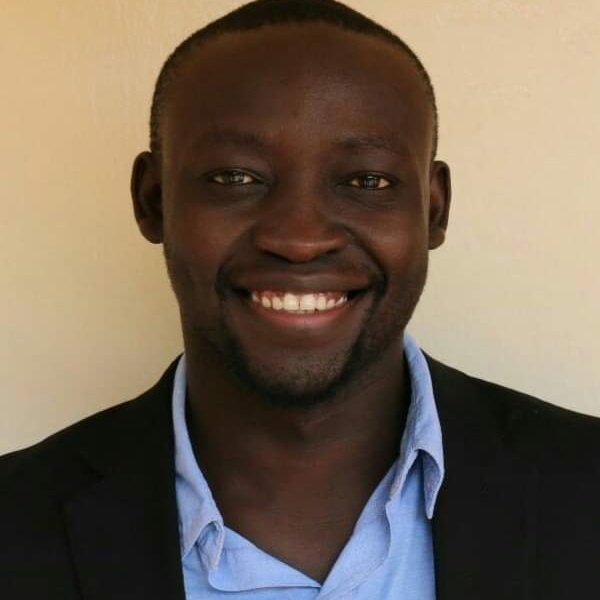
At 19 years, Nixon Ochatre took it upon himself and mobilized his peers to take lead in the prevention and response to teenage pregnancy and child marriage as part of efforts to protect adolescent girls and young women like his close friends and relatives who failed to reach their full potential due to teenage pregnancy and child marriage.
Through Amani Initiative, a Ugandan local organization he founded as a teenager, he has been able to engage communities to change existing social norms that lead to teenage pregnancy and child marriage; sensitize adolescents to make informed life choices through interventions around education and sexual and reproductive health; enable re-entry of child mothers back into school through school fees bursaries and lobbying parents; economic empowerment of women and households through Village Savings and Loan Associations; mobilizing communities to support child protection through advocating for bylaws and community dialogues.
Starting as a Community Based Organization operating in one village in Maracha District located, the organization has been able to scale its operations across 15 other districts of Uganda building a community-led network of 12 health facilities, 3,000 schools, and 250 community change agents as a delivery tool for the low cost- high impact community-led interventions on prevention and response to teenage pregnancy and child marriage with a focus on (1) education, (2) Child protection and safeguarding, (3) Socioeconomic Empowerment and (4) Child, Adolescent and Maternal Health.
Nixon’s efforts under Amani Initiative have been recognized by the African Leadership Awards, 2007 Kids Helping Kids Awards by New Horizon, 2013 Tumaini Awards by UNICEF, Save the Children and World Vision, UNFPA through 2017 Live Your Dream Campaign, the New Vision (Top40under40- 2016) and the Future Africa Awards (2016), Royal Commonwealth Society and the 2022 Rotary International Vocational Award.
Nixon is the current Chairperson for the Movement for Community-led Development Uganda Chapter, represents Northern Uganda within the Girls Not Brides Uganda National Alliance Steering Committee, and is also a Board Member at Izere Education.
Visit https://www.amaniinitiative.org to learn more about Amani Initiative.


